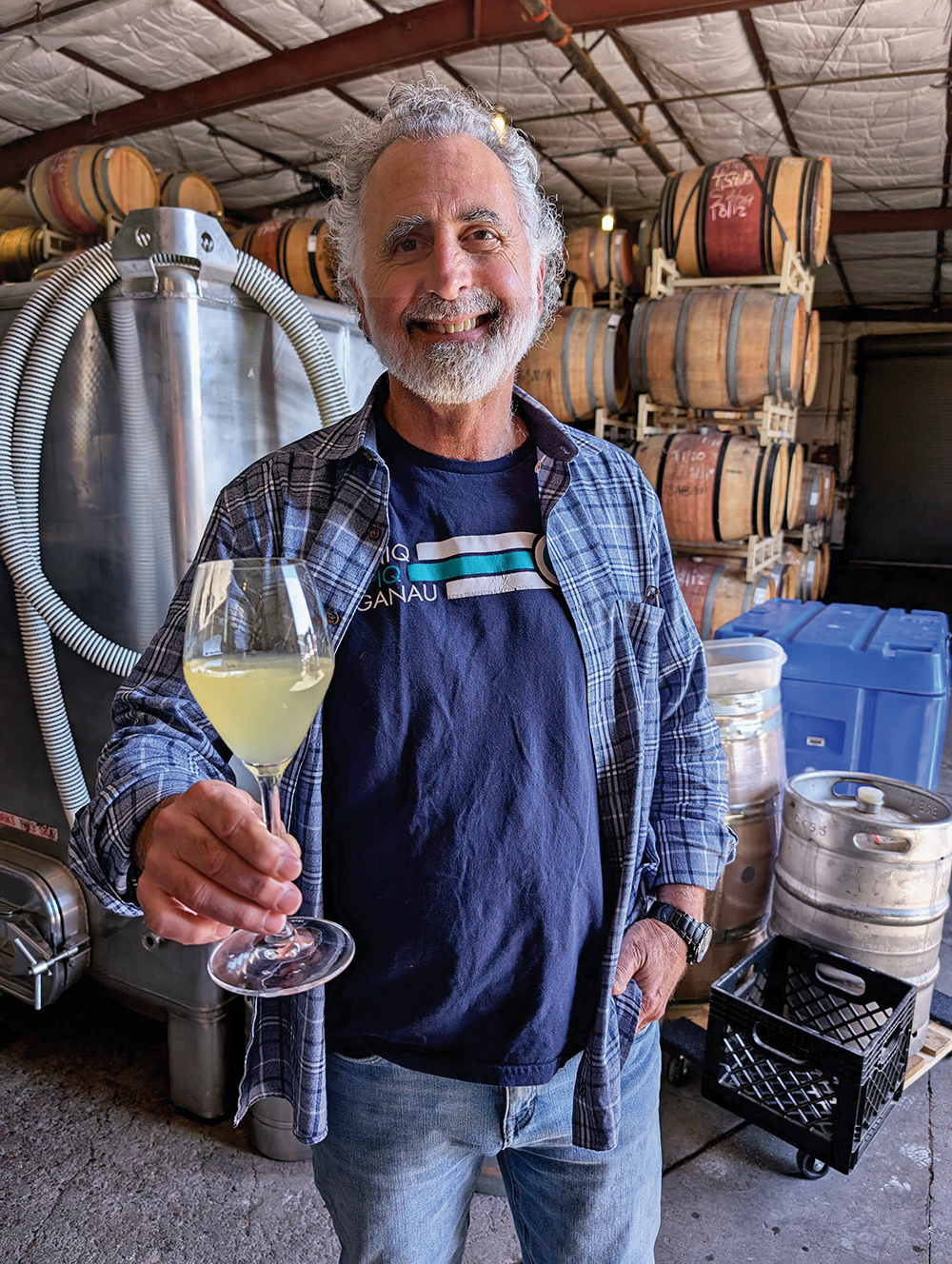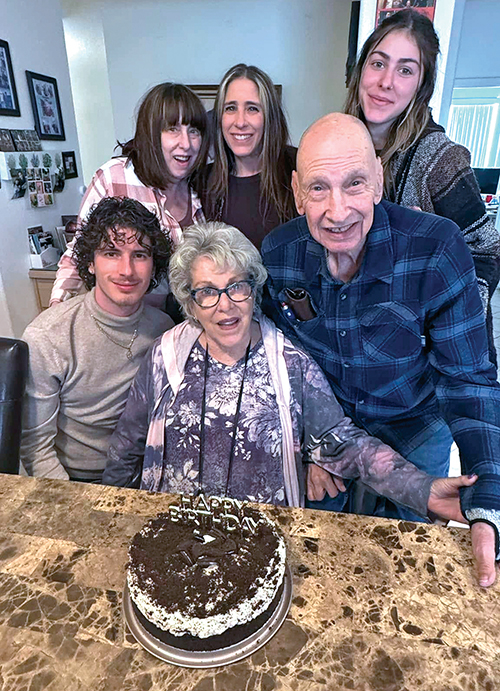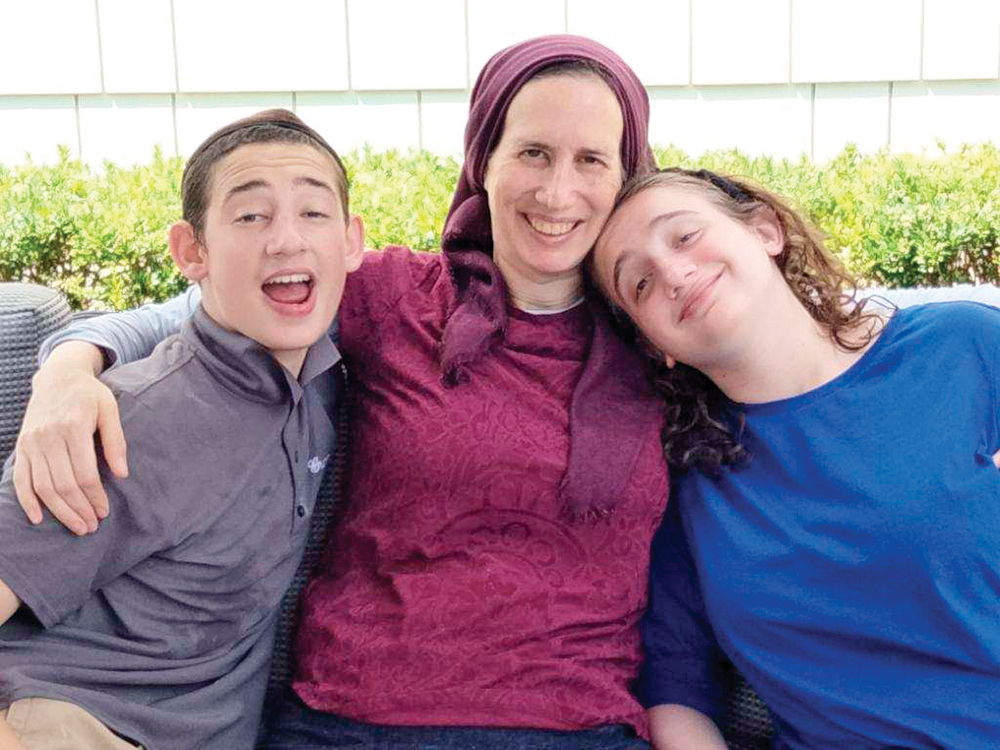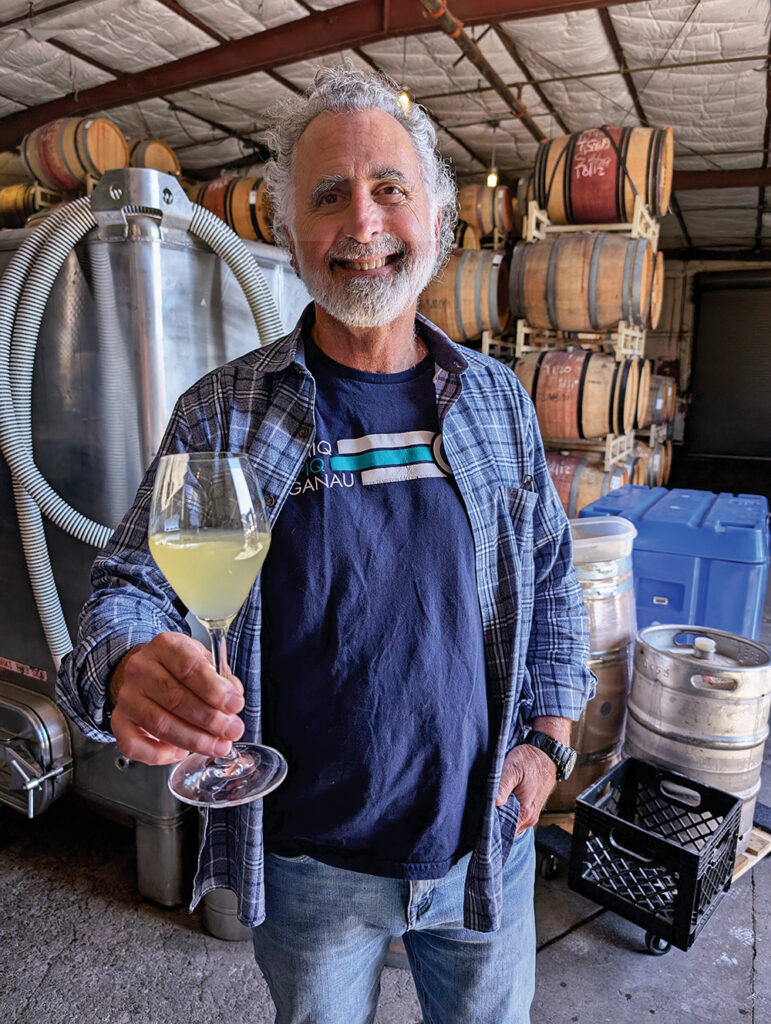
Editor’s note: We welcome Jules Polonetsky as a monthly columnist for The Jewish Link.
In 2002, Jeff Morgan tasted a bottle of Castel Grand Vin from Israel and was inspired to make similarly world-class kosher wine in Napa Valley, California. Castel was not, in fact, yet kosher at the time, but Morgan assumed an Israeli wine would be kosher, and a seminal venture in premium kosher winemaking was launched. Famed wine writer Jancis Robinson once declared Covenant “the best kosher wine I have ever tasted,” which is certainly serious praise from perhaps the most respected wine expert in the world.
Morgan was originally a musician, and his appreciation for wine had led him to take the post of West Coast editor for Wine Spectator magazine and to a venture dedicated to making top-quality wines. His spouse, Jodie Morgan, soon left her role as executive director of the American Institute of Food and Wine (founded by Robert Mondavi and Julia Child) to join him, eventually becoming Covenant Wines’ CEO.
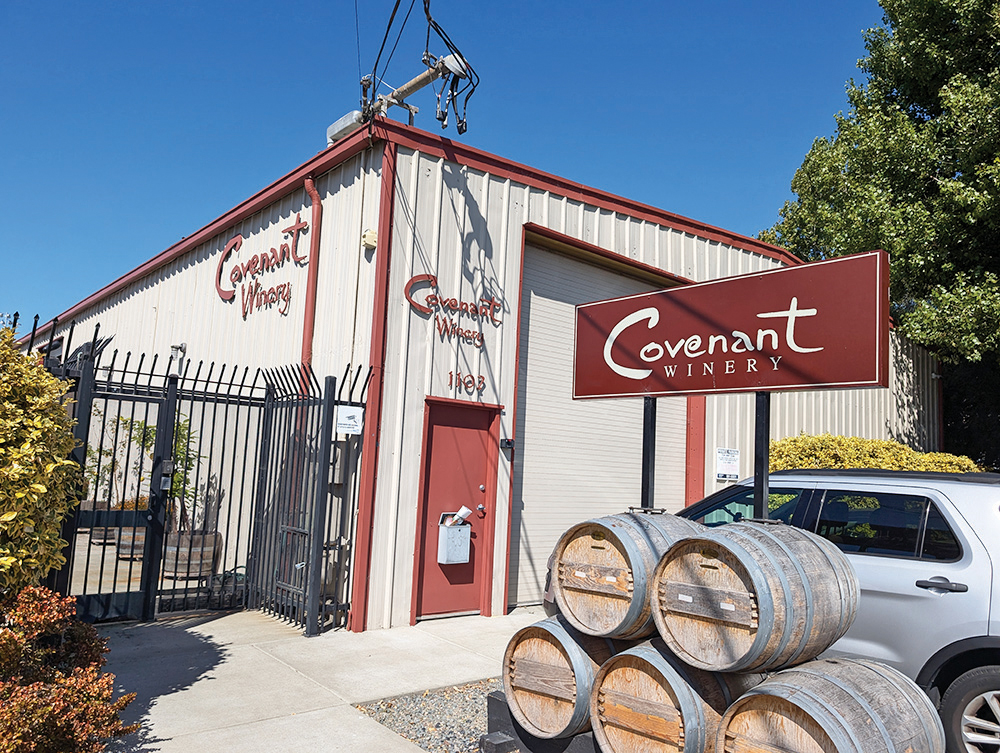
The Covenant style is to use minimal intervention, meaning native yeasts, native malolactic fermentation, no fining and minimal filtration if any. Covenant doesn’t grow any of its own grapes, but rather secures long-term relationships with top growers and seeks to highlight the terroir of those plots. Obtaining access to some of the most celebrated and sought-after grapes in Napa and Sonoma is no easy feat, given the intense demand from winemakers in the region. Relationships and trust are critical, explained Morgan during my recent visit.
In Covenant’s early years, Morgan’s business partner was the late philanthropist Leslie Rudd, of Dean & DeLuca fame as well as owner of many other ventures, including celebrated wines estates in Mount Veeder and Oakville, thus providing Covenant access to top-tier terroir. Today relationships with the owners of leading properties such as Bien Nacido Vineyards, a prestigious estate that requires tastings and approval of the wines made before allowing sales, ensure Covenant has continued access to quality fruit. Morgan explains the importance of trust and faith in these relationships, recounting the challenges growers faced after the California wildfires that made sourcing grapes a huge challenge, since detecting smoke taint affecting wine can be a difficult and imperfect process. Morgan stood by his contract with a leading grower despite uncertainty about the final resulting wine, taking significant risk and luckily being rewarded with top-quality wine unaffected by the smoke. Commitments like that have ensured long-term access to top vineyards, but Morgan does hope to one day grow his own grapes in the region. Other aspirations include one day making wine with a partner in Bordeaux or Burgundy, regions he has been inspired by for his winemaking.
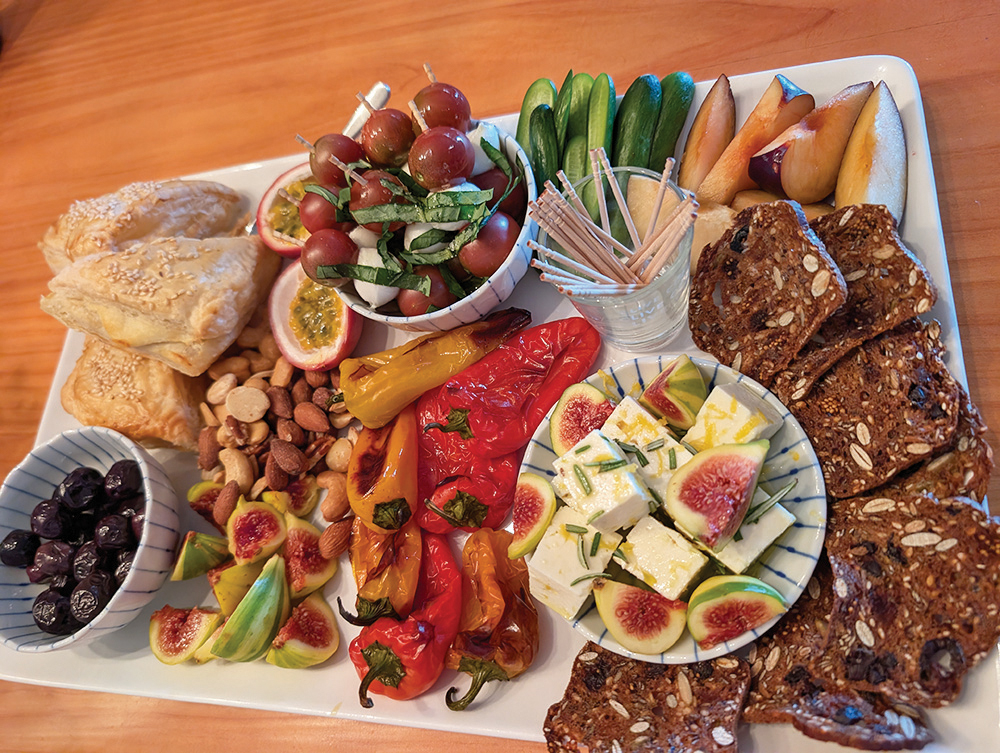
One region where Morgan’s aspirations met success in quality winemaking but also ran into the hard economics of the wine business is Israel. Spearheaded by daughter Zoë Morgan, who had made aliyah, Covenant Israel launched in 2013 into a very competitive market where most local sales are made in restaurants, as opposed to direct to consumer. Since Covenant wines are structured to pair well with food, Covenant Israel had great success in the many of the leading restaurants in Israel. Jeff Morgan is also a serious foodie and has authored multiple cookbooks, including “The Covenant Kitchen” and “Food and Wine for the New Jewish Table.” But the COVID shutdown of restaurants, followed by the shemita year, which severely restricted export of Israeli wines, made the economics too challenging and the Israel division ceased operations.
Zoë Morgan now oversees hospitality, digital marketing and other roles at the winery, which is located in the “drinks district” of Berkeley, where the facility hosts tastings, tours, musical performances by Jeff on the saxophone, and serves a lovely mezze platter. At my recent visit, she proudly pointed to the magnificent figs and passion fruit on the platter, noting they were among the items grown in her nearby home garden. Zoë grew up in the St. Helena area of Napa, where Covenant was initially located. The current location is closer to the local San Francisco, Oakland and Berkeley Jewish communities, making it much easier for many of the Covenant staff to get to work and much more convenient for visitors, whether locals or tourists. And the Morgans, who have been drawn closer to traditional observance through their wine journey, can participate in local synagogue life, a challenge in the more remote Napa region.
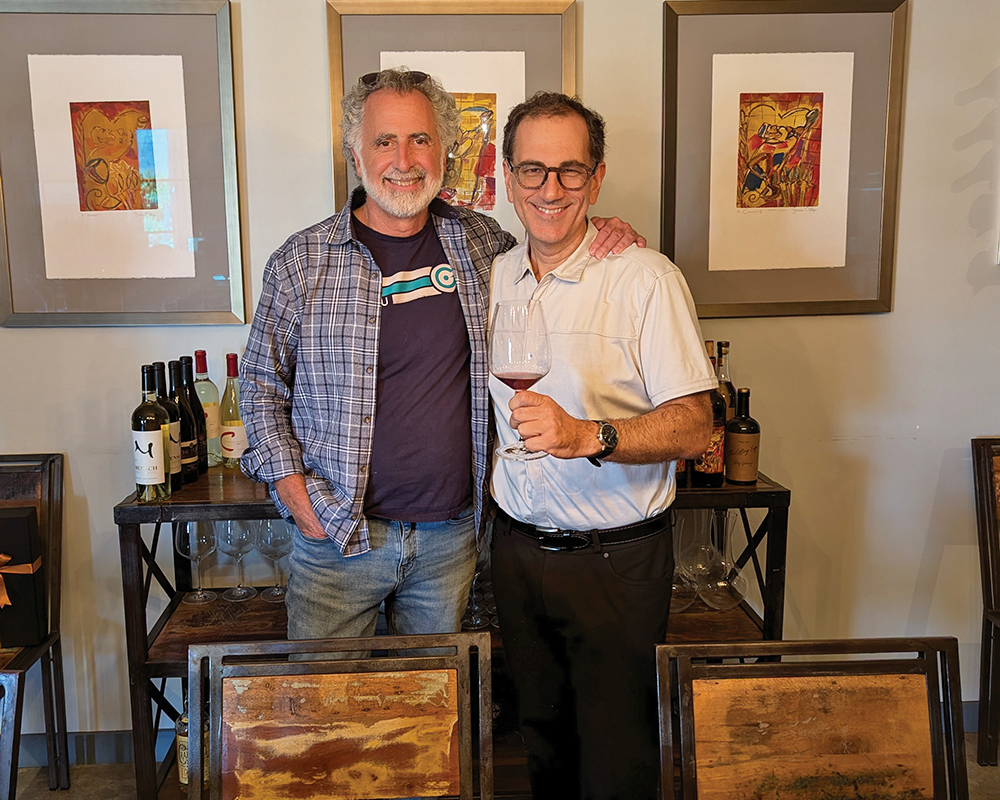
One important Israel legacy for Zoë was her active role in Hashizrah (The Stem), a venture that supports women in wine in Israel, an important priority given the importance of wine trade to the Israeli economy and the challenges in Israel during the current regional conflict.
To meet the needs of both high-end connoisseurs and younger consumers looking for quality and economy, Covenant offers wines at multiple entry points. The high-end Solomon line (in honor of co-founder Leslie Rudd’s Hebrew name Shlomo) fetches top-shelf pricing, with a 2023 barrel-fermented sauvignon blanc (to be released this November) that will be the first to spend time in an amphora. The Covenant labeled wines are the mainstay, and additional brands provide economy options. Landsman single vineyard releases are available only to Landsman Club members, while the relatively new “black label” is reserved for high-end mevushal wines, suitable for serving at simchas or at restaurants for Jewish and non-Jewish clientele. A new additional “Tartikov” kosher certification will please the ultra-Orthodox market, a segment increasingly important to premium winemakers.
With its accessible location not far from the San Francisco airport, Covenant is the only kosher winery that is easy to access. A tour, tasting, mezze platter and perhaps even a musical performance make it a memorable experience. Reservations required.
Jules Polonetsky is a Wine and Spirits Education Trust Level 3 Certified wine expert who focuses on kosher wines, when not occupied with his day job as CEO of a tech policy think tank. He is a former consumer affairs commissioner of New York City, and writes at the Wine and Whiskey Globe, Kosher-Wine.org and a number of Jewish media publications.


